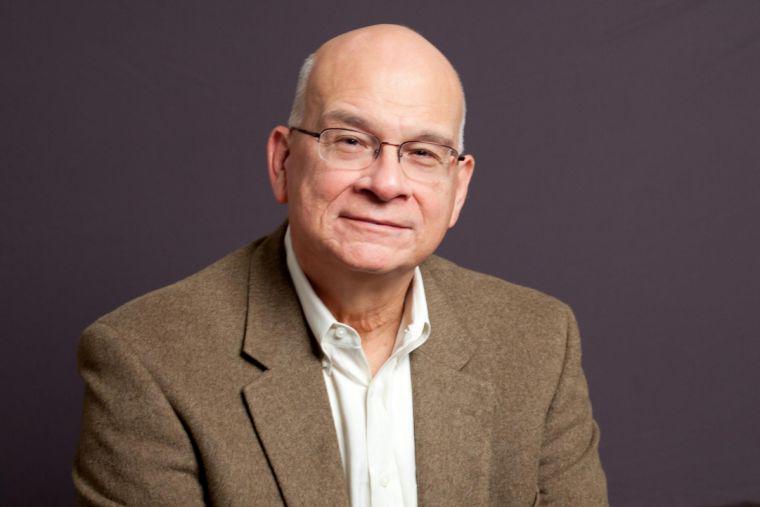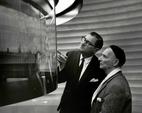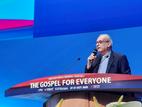An overseas Chinese Christian leader shared Timothy Keller's legacy on a comprehensive interpretation of the gospel and his response to contemporary culture.
On June 10th, an online exchange meeting titled “Understanding Timothy Keller,” sponsored by the Public Theology Association Organizing Committee which was initiated by overseas Chinese Christian theologians, was held among the Christian community.
Chinese academics, theologians, and pastors shared the inspiration that Timothy Keller's life had brought from various angles, including Rev. David Doong, Secretary-General of the Chinese Coordination Centre of World Evangelism; Associate Professor Dr. Leonard Sidharta of Singapore Bible College; Director Tsun-en Lu of the Ambassadors for Christ Training Center; and Pastor Pastor Andrew Chiang of Bilingual Community Church.
On May 19, 2023, Pastor Timothy Keller, a renowned American Christian speaker, writer, theologian, apologist, and founder of the Redeemer Presbyterian Church in New York City, passed away at the age of 72.
In the first lecture, David Doong shared the theme of “Keller’s Interpretation of the Gospel and How the Gospel Responds to Contemporary Culture.”
Doong observed a disconnect in certain churches or Christian groups when discussing the Christian faith. For instance, the pastoral care philosophy, preaching, and calling methods, defense of the faith, and application of faith that churches previously adhered to have increasingly distanced themselves from the dialogue groups they encounter today.
He believes that Pastor Timothy Keller's ministry career and his response to numerous contemporary issues, such as how Christianity can effectively influence society today, may provide a potential model.
Pastor Keller's interpretation of the gospel was simultaneously traditional and innovative. He viewed the gospel not merely as a theme but as a narrative, without separating the narrative from its core themes. Instead, he integrated them, transforming theological themes into a form of discourse infused with warmth and storytelling.
Doong also emphasized the need for pastors to interpret the fruitfulness of the gospel in two contexts: First, pastors must attentively observe and understand the circumstances of believers and avoid employing a one-size-fits-all approach. The interpretation of the gospel should be grounded in reality. When Christians perceive a discrepancy between truth and life, it often stems from pastors lacking a profound comprehension of the real situations faced by believers. Second, Doong maintained that the gospel, when embraced, has the capacity to respond to every cultural situation. He cites Pastor Keller's perspective: "In any circumstance, the gospel is sufficient to address every culture and the unique aspirations, fears, and idols of each individual. It can be expressed differently within distinct cultural contexts."
The speaker proceeded to elaborate on how we can recognize the significance of gospel renewal and application in Pastor Keller's ministry. Firstly, Pastor Keller emphasized the need for churches to prioritize gospel renewal and, more importantly, consistently identify and expose the idols prevalent in this era. Secondly, concerning the application of Christ's truth and the response to cultural contexts through the gospel, Dong quoted an example given by Keller: "Suppose there is a mountain today, and you attempt to dismantle it gradually with explosives at its base. It would take a considerable amount of time before the mountain is leveled. However, the most effective approach is to locate a strategic point to dig a hole, reach the core of the mountain, and place explosives there for detonation. This method would have a far greater impact than gradually dismantling the mountain at its base."
Consequently, Pastor Keller believed that churches should first engage with culture, then seek to understand it, identify the core pursuits within the culture, and ultimately expose them. By highlighting that only through Christ and following His teachings can our culture truly attain its desires.
Subsequently, Dong talked about what position we should stand on when responding to culture through the gospel in Pastor Keller’s ministry. He believes that Pastor Keller’s theological view and response to culture were also models for public witness in this era of ideological division. A church historian's book, Destroyers of Gods, lists five characteristics of early churches. The first characteristic is multiculturalism; the second is mercy for helping poor people; the third is taking no revenge, with an emphasis on forgiveness; the fourth is against abortion and abandonment of children; and the fifth is against sexual immorality in a culture. If we only look at the first two characteristics, people will think that early churches stood on left-wing positions, but if we look at the latter two characteristics, people will think that early churches stood on the right. However, Pastor Keller believed that whether it was left or right, we had ignored the middle: forgiveness and non-retaliation.
Subsequently, Dong discussed the appropriate stance to adopt when responding to culture through the gospel, as evident in Pastor Keller's ministry. He asserted that Pastor Keller's theological viewpoint and response to culture also serve as models for public witness in this era characterized by ideological divisions. In the book Destroyers of Gods, a historical account of THE early church, five characteristics are outlined. The first characteristic is multiculturalism; the second is demonstrating mercy towards the impoverished; the third refers to refraining from seeking revenge and emphasizing forgiveness; the fourth is opposition to abortion and the abandonment of children, and the fifth speaks about the resistance against sexual immorality prevalent in the culture. By solely considering the first two characteristics, some might perceive the early church as leaning towards left-wing positions. However, focusing on the latter two characteristics might suggest a right-leaning perspective. Nevertheless, Pastor Keller believed that regardless of left or right, we have overlooked the middle ground, which encompasses forgiveness and non-retaliation.
"Pastor Keller reminds us that irrespective of political ideologies, none should endorse our Christian culture solely in response to public matters. Instead, we must return to the gospel of Jesus Christ. Regardless of the challenges we face, the church should position itself as a community of mutual learning, practicing reconciliation, forgiveness, acceptance, and non-retaliation," emphasized Dong.
He exemplified Pastor Keller's approach of rarely resorting to malicious attacks or insults towards opponents, consistently maintaining a composed demeanor in his articles and works. When encountering positions he did not comprehend, he refrained from hasty criticism or judgment of others, even those who publicly criticized him. This demeanor serves as a valuable lesson for many church pastors.
Finally, Dong summarized, "While we may not agree with all of Pastor Keller's ethical and theological perspectives, his gentleness and humility are virtues worth adopting by all. Such humility lies at the core of Reformed theology, which emphasizes God's sovereignty. A true believer who comprehends and upholds God's sovereignty should find it natural to humble oneself and acknowledge fallibility, recognizing that ultimate sovereignty resides solely with God and not with humanity."
- Translated by Charlie Li











